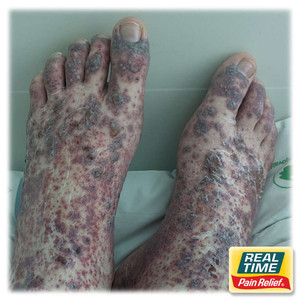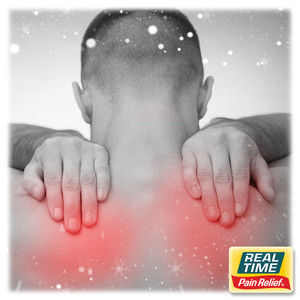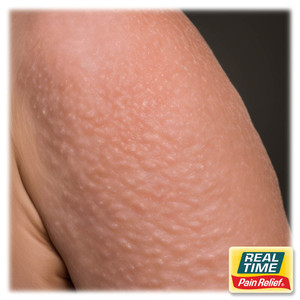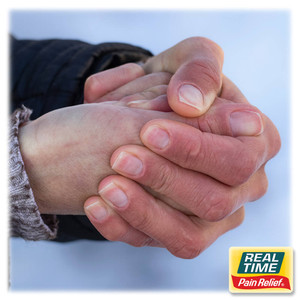5 Tips to Deal with Chapped Lips
2nd Feb 2022
Dealing with chapped lips? Here are 5 tips to get relief for your chapped lips!
Most of us have experienced chapped lips at one time or another. For some people, chapped lips occur occasionally. But for others, it can be a chronic problem.
Although chapped lips are not a serious health concern, they can still be uncomfortable and annoying. But you don’t just have to live with dry, cracked lips. There are things you can do to treat chapped lips and prevent it in the future.
Why Do You Get Chapped Lips?
The skin on your lips tends to be delicate and thinner than other areas of your body. Unlike other areas, the lips don't have oil glands to provide natural moisture.
Plus, the skin on other parts of your body is often covered while your lips are usually exposed to the everyday elements, such as the wind, cold air, and sun. This combination can lead to chapped lips.
Different types of weather can increase the chances of developing chapped lips. Cold air during the winter months can dry the lips. And the heat from the summer sun can also decrease moisture in the lips.
Symptoms of chapped lips can be mild or severe enough that the lips flake, crack, and peel. In most cases, chapped lips are not a sign of anything serious.
However, in rare cases, chapped lips may be a symptom of a condition called actinic cheilitis. Actinic cheilitis is a precancerous condition that affects the outer layer of lip tissue. It can cause the lips to become dry, chapped, and scaly. According to the American Academy of Dermatology, actinic cheilitis itself is not serious, but it might mean your risk of skin cancer is increased.
If chapped lips become severe and do not go away with typical home remedies, consider seeing a dermatologist to have it checked out.
5 Home Remedies to Deal with Chapped Lips
Chapped lips are nothing to be too concerned about. But that doesn’t mean you don’t want relief. Usually, home remedies are useful to decrease dryness. Consider the following suggestions:
#1) Wear a Lip Balm
Using a lip balm is one of the best ways to deal with chapped lips. It can moisten the lips and decrease irritation. But using the right lip balm is important. Certain products that have artificial dyes or other irritants might make chapped lips worse. Choose a lip balm that is free of artificial dyes, parabens, and GMOs. Instead, look for nature’s ingredients, such as arnica, shea butter, coconut oil, vitamin E, and chamomile. A homeopathic lip balm may help to soothe dry lips and add moisture almost immediately. Apply the lip balm two times a day or as needed for relief.
#2) Drink Plenty of Water
Dehydration is one of the main ways your lips become chapped. If your body loses fluid and does not replace it at the same rate, it can lead to dehydration. The body tries to compensate for the lack of fluid by pulling water from certain areas, so that vital cells remain hydrated. That’s why dehydration can lead to dry skin and lips. Be sure to drink plenty of water, especially on warm days and when you exercise.
#3) Gently Exfoliate Your Lips
Although you don’t want to damage the delicate skin on your lips, a gentle exfoliation may help remove dead skin and allow lip balms to penetrate the tissue better. To remove dead skin, use something mild, such as baking soda or granulated sugar. Scrub very lightly to avoid irritating and further drying the lips.
#4) Use a Humidifier
During the winter months, the humidity level often drops, leaving the air cold and dry. There is not much you can do about the weather outside, but you can moisten the air inside by using a humidifier.
#5) Avoid Frequently Licking Your Lips
If your lips are chapped, it’s a natural reflex to lick them. But repeatedly licking your lips can make chapped lip worse. Remember, saliva contains acids that help digest food, and can also dry out the lips.
Tips to Prevent Chapped Lips
It is not always possible to prevent chapped lips completely, but you can decrease your chances with the following tips:
- Don’t smoke: Smoking increases dryness and your chances of chapped lips. It’s one more reason to kick the habit.
- Avoid irritants and allergens: Certain lipsticks and glosses may contain dyes and fragrances that are allergens or irritants. Try to notice if your lips become chapped after using certain products, so you’ll know what to avoid.
- Protect your lips in the cold: The cold, dry air is one of the biggest causes of chapped lips. When you’re outside in the cold weather, consider placing a scarf over your mouth to stop the dry air from hitting your lips. Also, use a lip balm before you go out to keep the lips moist.
Pain Relief You Can Trust® Since 1998
For over 20 years, families across the U.S. have turned to Real Time’s lotions and creams for PAIN RELIEF YOU CAN TRUST®. From Lifestyle Essentials, through our Nujuvena line, to Pain Relief Formulas, Real Time has you covered. LEARN MORE
Sources





